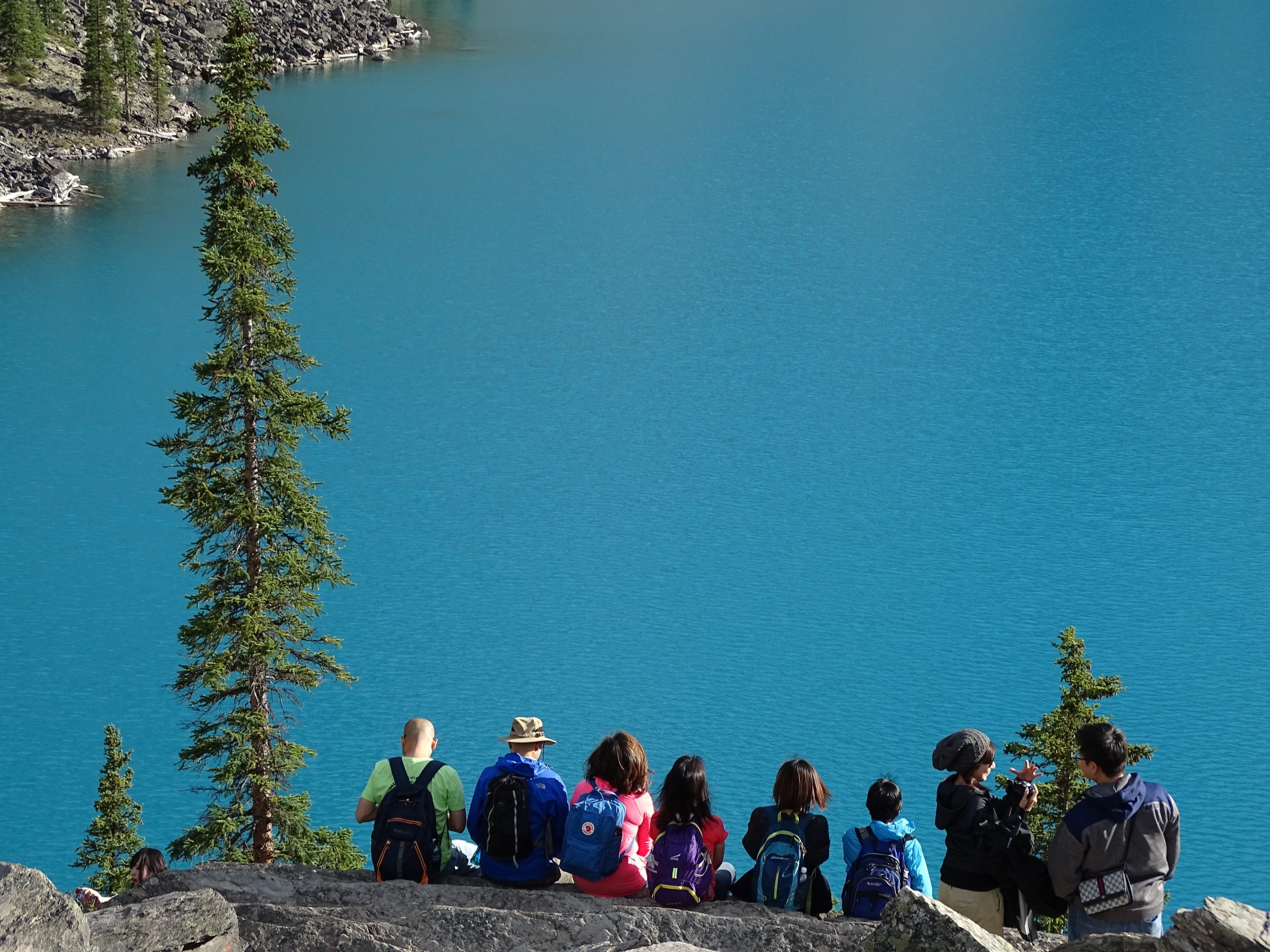The Fusion of Innovation and Tourism: Inspiring Success Cases
It is no secret that the main pillar for the growth of any business is innovation. In recent years, we have witnessed the rise of artificial intelligence due to its accelerated growth. Innovation and tourism go hand in hand, improving and simultaneously generating new products, services, and experiences to meet new demands. For example, customer service optimization has seen the emergence of chatbots as allies, and mobile applications now optimize time in hotels for bookings, cancellations, or modifications. In this context, I want to share the success story of Zoku, which emerges as one of the rising trends in the hotel industry due to the increase in modern nomads and remote workers seeking flexible and comfortable spaces to stay, work, and socialize. Zoku took advantage of this demand by offering a business model that caters to people who frequently travel for short and long periods and need a place that fits their lifestyle and needs, considering that conventional hotels do not always meet these requirements due to factors like cost and lack of privacy, among others. Zoku addresses this market niche with a new concept of a hotel and coworking space. Designed as lofts, their spaces are spacious and functional, easily transforming
Travel Trends 2024
The world of tourism is like a canvas constantly evolving, with each passing year bringing new strokes of experiences and destinations. After dissecting the travel trends unveiled by Amadeus, a leader in the travel industry, this article takes pleasure in highlighting the trends that will shape the tourism landscape in 2024. Generative Artificial Intelligence (GAI) at the heart of the travel experience Generative Artificial Intelligence (GAI) is gaining ground in the tourism sector in 2024, translating into more personalized and efficient travel experiences. Instead of relying on filters on search sites, travelers can now interact with GAI-based chatbots, such as Expedia's new ChatGPT plugin. Acting as a virtual travel assistant, it provides instant hotel recommendations and itineraries with links for booking. This evolution in travel planning offers a more intuitive and personalized experience for consumers. The rise of music tourism After the social isolation of the pandemic, music has become a powerful medium of connection. Music tourism is experiencing a surge, with artists like Coldplay and Taylor Swift leading the charge. The connection between musical events and the increase in flight searches and bookings is evident. For example, Coldplay's announced concerts in Romania and Greece for 2024 had a significant impact on flight searches
The Christmas Travel Experiences That Travelers Seek
In the dynamic travel industry, trends constantly shift and evolve. According to Airbnb, the most sought-after destinations for this year-end holiday season offer a fascinating insight into the preferences of Latin American and global travelers alike. From tropical getaways to urban explorations, let's delve into some of the standout trends. Dreamy destinations: from Osaka to Rio de Janeiro This winter, travelers' attention is drawn to dreamy destinations in Asia-Pacific and South America. Cities like Osaka, Japan, and Rio de Janeiro, Brazil, are capturing the interest of those seeking unique experiences. The easing of restrictions in Japan has put Osaka on the map, while Rio de Janeiro continues to shine as a South American gem. Moreover, the variety of destinations such as Hanover, Germany, and Muang Pattaya, Thailand, highlights the diversity of modern travelers' preferences. This phenomenon reflects the growing openness to explore unconventional destinations and immerse oneself in new cultures. Families on the move: Tokyo, Rio de Janeiro, and more This year, adventurous families are ready to explore from the vibrant streets of Tokyo to the sunny beaches of the Bahamas. Destinations like Rio de Janeiro and São Paulo in Brazil, along with Crucecita in Mexico, have captured the attention of those seeking both cultural
The Evolution of Tourism and Hotel Performance in the Post-Pandemic World
The world of tourism and the hotel industry have witnessed a remarkable evolution in recent years, especially in the context of a world marked by the COVID-19 pandemic. According to the latest World Tourism Barometer from the World Tourism Organization (UNWTO), international tourist arrivals in the first quarter of 2023 have reached an impressive 80% of pre-pandemic levels, compared to the same period in 2019. This 86% growth from the previous year reflects the ongoing strength of international tourism, with approximately 235 million tourists traveling internationally during the first three months of the year. In this dynamic context, hotels play a fundamental role as they have had to adapt and evolve to meet the changing demands of travelers while providing memorable experiences. Emerging tourism trends As we have discussed on previous occasions, sustainability has become a key aspect of tourism in 2023. Travelers are increasingly concerned about the environmental and societal impact of their trips, charting new paths to destinations that not only captivate their imagination but also contribute to environmental conservation. Concrete examples of this trend include the growing demand for eco-friendly accommodations, the rise of volunteer travel, and the popularity of destinations with sustainability certifications. Furthermore, health and wellness tourism has taken on a
The keys to success in the tourism industry
The tourism and hospitality industry, with its unmistakable charm, is constantly in motion and evolution. In a world where mobility and curiosity are the norm, excelling in this competitive sector is an art that combines a passion for travel with the ability to offer exceptional experiences. In this article, we will delve into some of the essential keys to success in the tourism industry. Offering a unique and memorable travel experience: travelers seek more than just destinations; they crave experiences that differ from their everyday lives. Experiential tourism is a concrete example of this, as it is a growing trend where travelers increasingly seek authentic, memorable experiences that leave a positive impact on them. Adapting to market trends: the tourism sector is constantly evolving, so companies must stay up-to-date with the latest trends and adapt their products and services accordingly. For example, the increasing demand for sustainable travel has led many tourism businesses to offer environmentally friendly products and services. Continuous innovation: innovation is the backbone of success in any industry, and tourism companies must provide innovative products and services. As Zurab Pololikashvili, Secretary-General of the World Tourism Organization (UNWTO), pointed out, "tourism companies must leverage new technologies to offer more personalized and
Sub-Tourism: An Alternative to Addressing the Challenges of Mass Tourism
Tourism is one of the world's largest industries, and its growth has been steady in recent years. According to data from the World Tourism Organization (UNWTO), in 2019, an estimated 1.465 billion international trips were made, marking a milestone in the industry's history. However, the COVID-19 pandemic in 2020 represented an unprecedented setback for the sector. With grounded airplanes, closed hotels, and travel restrictions worldwide, the number of trips plummeted dramatically to 406.98 million. Despite the challenges faced by the industry, UNWTO reported that by 2022, approximately 962.80 million trips were recorded worldwide, demonstrating astonishing growth of 136.95% compared to 2020. These figures underscore the sector's resilience and adaptability, prompting questions about how we can maintain a balance between this rapid growth and sustainability. One of the most pressing challenges of mass tourism is its impact on the environment and local communities. The overexploitation of tourist destinations can deplete natural resources and disrupt the daily lives of host populations. In response, UNWTO has acknowledged these issues and promotes sustainable tourism as a solution. This involves adopting environmentally friendly practices and fostering healthy cultural interaction. In this context, the concept of "sub-tourism" emerges as an alternative. It involves seeking more authentic and less crowded






